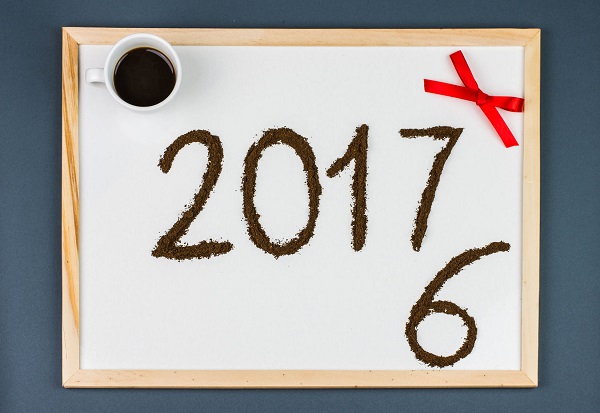Keep an eye on interest and exchange rates in 2017
Looking back at 2016, the investment market was quite a challenge to read due to Black Swan events. While the general direction of the interest rate and renminbi (RMB) exchange rate trends are relatively clear, how will this impact the year ahead?

Interest and exchange rates
In mid-December 2016, the US Federal Reserve raised interest rates by 0.25%. The move lifted the target range for the federal funds rate, the interest rate at which depository institutions lend overnight, at 0.5% to 0.75%. While interest rate is relatively low at present, it is widely expected that interest rate normalisation will speed up under the presidency of Donald Trump. In December, the Fed also projected that the median for the federal funds rates at the end of 2017 and 2018 will be 1.4% and 2.1% respectively. Thus, the market is expecting three rate hikes next year.
The US dollar (USD) and RMB have been moving in opposing directions in recent years. In anticipation of the December interest rate hike, the USD Index has been strengthening over the past few months, and has now reached over 103 points. On the other hand, the RMB has weakened against the USD and has fallen to an eight-year low. With a bearish RMB against a strong USD, the USD to RMB exchange rate is expected to fall to 1:7 next year.
Do interest rate hikes matter?
Hong Kong adopts a Linked Exchange Rate System where the Hong Kong dollar (HKD) is pegged to the USD, and Hong Kong interest rate adjustments generally follow after the US. When the Fed raised the federal funds rate in December, the Hong Kong Monetary Authority followed suit by raising its base rate. Given the abundant liquidity, Hong Kong interest rates do not need to follow the US in the short term. However, due to arbitrage activities, interest rates between Hong Kong and the US cannot deviate for long period of time, and if US interest rate increases faster next year, Hong Kong will need to follow suit. Interest rate hikes typically affect individual credit, consumption, savings and investments.
- Cost of borrowing
Borrowing cost increases along with interest rate hikes. For instance, it is common for property buyers to choose variable-rate mortgage plans, including prime rate-based or HIBOR-based (Hong Kong Inter-bank Offered Rate) mortgage plans during the prolonged period in a low interest rate environment. When the interest rate hike cycle starts, monthly mortgage repayments will increase. - Consumption and saving
Borrowers will have to cut expenditure as their disposable income decreases due to increase in interest payments. Interest rate hikes also discourage people from borrowing for consumption. On the other hand, rising deposit rates give incentive to save more and spend less. - Investment risks
Rising interest rates lead to unfavourable investment sentiment in the stock, bond and property markets. For stocks, interest rate hikes are not conducive for companies to do business and invest. It may undermine their earnings and cash flow, and is negative to stock price and valuation. For bonds, bond price usually moves in the opposite direction of the interest rate, i.e. bond price falls when interest rate rises. Long-term bonds are more sensitive to interest rate movements than short-term bonds. For the property market, interest rate hikes increase interest payments and reduce investment returns that may lower property demand eventually.
The impact of a weakening RMB
There are close economic and investment relationships between Hong Kong and the Mainland. While many Hong Kong people exchange RMB for use in the Mainland, there are many RMB-denominated investment products available in Hong Kong. Movements in RMB exchange rate do matter to investment and consumption.
- Less expensive to consume in the Mainland
As the RMB exchange rate weakens, consumption and cost of living in the Mainland becomes less expensive after converting to HKD. - RMB exchange rate fluctuations
There are a wide range of RMB denominated investment products in Hong Kong. In the past, people invest in RMB denominated investment products in anticipation of RMB appreciation. However, as the RMB weakens, you should not assume that you can gain from the exchange rate because when you invest in RMB denominated investment products, the RMB exchange rate fluctuates and you could also experience a potential loss in exchange rate.
Uphold proper practices against a fluctuating market
It is impractical to predict and ride on the Black Swans next year. Rather than looking for events that are less likely to happen, it would be better to review those important factors affecting the economy and investments, including economic growth, economic and political risks, as well as movements in interest rate and exchange rate in order to help you to make an informed decision. In a fluctuating market, good investment practices include investing within your means, diversifying your portfolio and avoiding short-term speculation and leverage.



